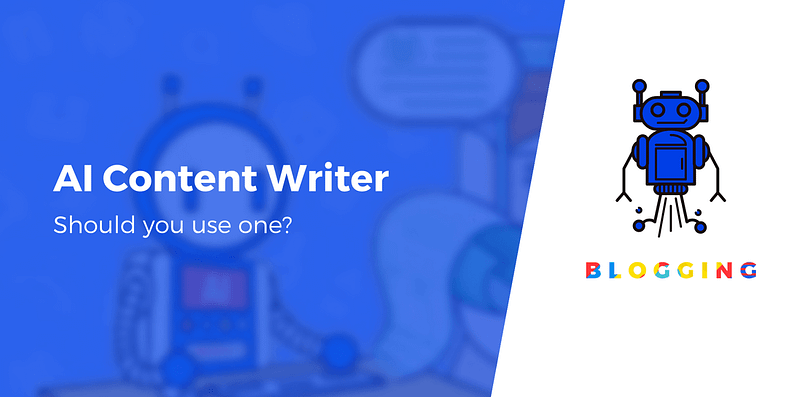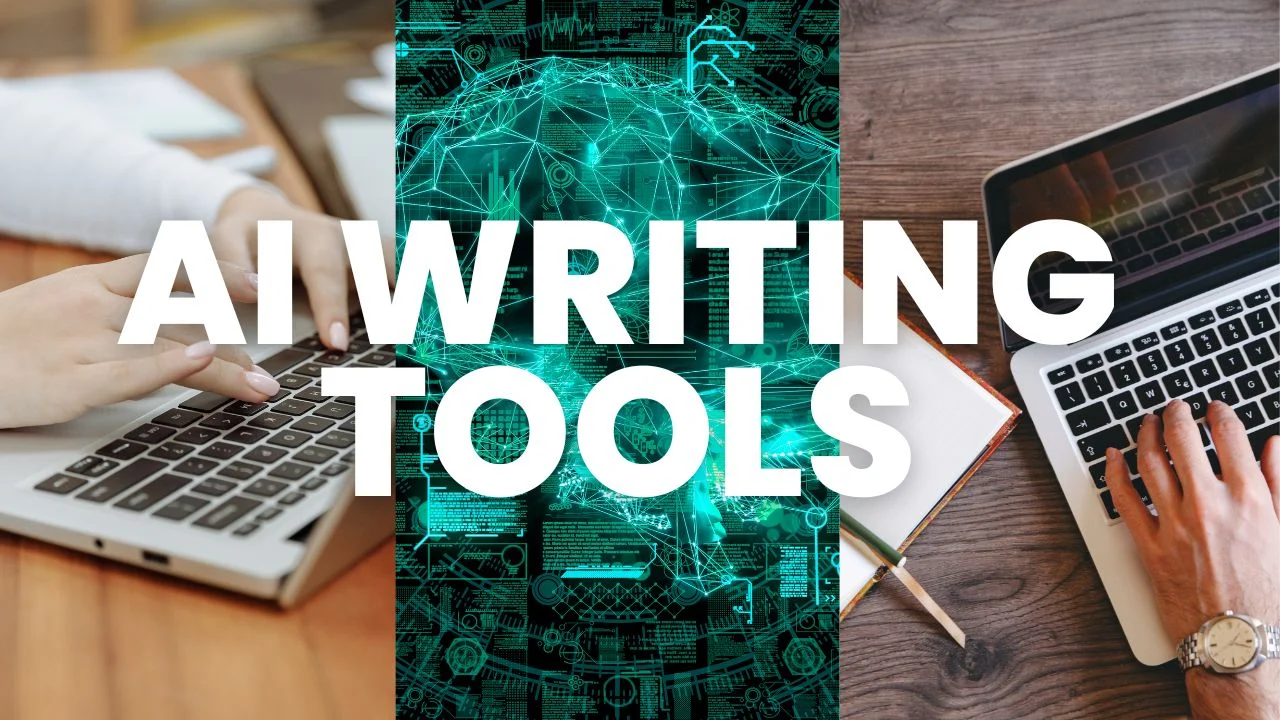Artificial intelligence (AI) is making significant inroads into the marketing landscape. According to Statistics 80% of industry experts integrate some form of AI into their online marketing activities such as generating marketing content from AI.

If you’re new to the realm of artificial intelligence, the concept might seem like something out of a sci-fi movie. Terms like machine learning and neural networks might evoke images of futuristic robots. However, AI has evolved significantly, and its applications in marketing are becoming increasingly commonplace. Understanding the basics of AI and its potential benefits can be the first step towards harnessing its power for your business.
Is AI really what it looks like in the movies? This article will explore the definition of AI, the different types of AI, and how AI can improve marketing processes.
What is AI?

Artificial intelligence is the use of computer systems to perform tasks that typically require human intelligence, such as visual perception, speech, translation, decision-making, and problem-solving.
So now you know what AI is, let’s explore how it functions.
How does AI work?
First of all let us learn how AI actually works. AI combines large sets of data with intelligent, repetitive processing algorithms to learn from patterns and features within the data being analyzed. The AI continuously processes and learns from the data. Within each round of data processing, the AI system tests and measures its own performance to gain additional expertise. AI can run through thousands, even millions, of tasks repeatedly — improving its performance in a short amount of time. However, there are multiple kinds of AI, each with its capabilities and limitations.
What are AI Content Writing Tools?
In today’s digital age, content is king. Businesses, bloggers, and marketers need a steady stream of high-quality content to engage their audiences, rank well on search engines, and drive traffic to their websites. However, creating such content consistently can be challenging and time-consuming. This is where AI content writing tools come into play. These tools promise to generate, optimize, and even edit content quickly and efficiently. But what exactly are AI content writing tools, and should you use one? Let’s dive in.

AI content writing tools are software applications that leverage artificial intelligence (AI) and machine learning (ML) to assist in the creation of written content. They can perform a variety of tasks, from generating articles and blog posts to optimizing existing content for search engines. Here are some common types of AI content writing tools:
- Text Generators
These tools can create articles, blog posts, product descriptions, and more from scratch based on input prompts. They use natural language processing (NLP) to understand the input and generate human-like text. Examples include OpenAI’s Chat GPT, Jasper. - Grammar and Style Checkers
Tools like Grammarly fall into this category. They analyze text for grammatical errors, punctuation mistakes, and stylistic issues, suggesting improvements to make the writing clearer and more polished. - Content Optimizers
These tools help improve the SEO (Search Engine Optimization) of your content. They suggest keywords, improve readability, and provide insights on how to make your content more appealing to search engines. Example include Yoast SEO. - Idea Generators
AI tools like AnswerThePublic can generate content ideas and outlines based on trending topics, keywords, and audience interests. This can be particularly useful for bloggers and marketers looking for inspiration. - Paraphrasing Tools
Paraphrasing tools like QuillBot can rewrite existing content to make it unique while retaining the original meaning. This can help avoid plagiarism and produce fresh content from existing material.
Should You Use an AI Content Writing Tool?

The decision to use AI content writing tools depends on your specific needs, goals, and the context in which you plan to use them. Here are some pros and cons to consider:
Pros
- Time-Saving
One of the most significant advantages of AI content writing tools is the time they save. Creating content manually involves extensive research, drafting, editing, and revisions, which can be a lengthy process. AI tools can expedite these stages significantly. By generating content quickly based on input prompts and leveraging vast databases of information, these tools can produce drafts in minutes. This rapid generation allows content creators to focus on fine-tuning and refining the output, thereby enhancing overall productivity and enabling the production of a higher volume of content in less time.
- Cost-Effective
Hiring a team of writers, editors, and SEO experts can be costly, especially for businesses needing large amounts of content. AI content writing tools can handle many of these tasks, reducing the need for extensive human resources. Although there may be an initial investment in AI tools, the ongoing savings can be substantial. Subscription fees for these tools are often much lower than the combined salaries of a content team, making AI a cost-effective solution for content production. Moreover, the efficiency and speed of AI tools can result in faster turnaround times, further enhancing cost savings.
- Consistency
Maintaining a consistent tone, style, and quality across various pieces of content can be challenging, particularly when multiple writers are involved. Inconsistent content can confuse readers and weaken brand identity. AI content writing tools help ensure uniformity by adhering to predefined guidelines and styles. These tools can be programmed to follow specific brand voices and tones, producing content that aligns with the desired brand image. This consistency is crucial for maintaining a cohesive brand presence across all content platforms, from blogs and articles to social media posts and product descriptions.
- SEO Optimization
Search Engine Optimization (SEO) is essential for improving online visibility and driving traffic to websites. Many AI content writing tools are designed with SEO in mind. They can suggest relevant keywords, optimize meta descriptions, and improve content readability. These tools analyze search engine algorithms and trends to ensure the content produced is optimized for higher rankings. By incorporating SEO best practices, AI tools help content perform better organically, attracting more visitors and enhancing the overall online presence of a business or brand.
- Enhanced Creativity
AI tools can serve as a valuable resource for generating new ideas and perspectives. They can help overcome writer’s block by providing fresh angles on familiar topics, which a human writer might not consider. By analyzing vast amounts of data and trends, AI tools can suggest unique content ideas, headlines, and outlines. This capability allows content creators to explore new avenues and enhance their creativity. While AI cannot replace human ingenuity entirely, it can certainly supplement and inspire writers to think outside the box and produce more engaging content.
Cons
- Quality Variations
While AI tools can produce content quickly, the quality of the output can vary significantly. AI-generated content might be grammatically correct but may lack the depth, coherence, and engagement that human writers bring to the table. Often, the content produced by AI requires substantial editing and refinement to meet high standards and align with brand voice. It’s crucial to review and polish the AI-generated content to ensure it meets the desired quality and resonates with the target audience.
- Lack of Originality
AI tools can sometimes produce content that sounds generic or repetitive. Since AI relies on patterns and data from existing content, it may struggle to create truly unique and compelling narratives. This lack of originality can be a drawback for businesses aiming to differentiate themselves and stand out in a crowded market. Human creativity and critical thinking remain irreplaceable for crafting distinctive and captivating content that leaves a lasting impression on readers.
- Context Understanding
AI tools often struggle with understanding nuanced contexts, cultural references, and specific brand voices. They may miss the subtleties and emotional nuances that a human writer would naturally incorporate, leading to content that may not fully resonate with the audience. For instance, humor, idiomatic expressions, and cultural sensitivities are areas where AI might fall short. Ensuring the content is contextually accurate and culturally appropriate typically requires human oversight and intervention.
- Dependence on Technology
Over-reliance on AI content writing tools can lead to a decline in human writing and editing skills. As content creators become dependent on AI, their ability to craft high-quality content independently might diminish. It’s essential to strike a balance between using AI tools and maintaining human input in the content creation process. Regularly practicing writing and editing without AI assistance can help retain and develop these critical skills, ensuring that human creativity and expertise continue to play a central role.
- Ethical Concerns
Using AI-generated content raises several ethical questions, particularly around originality and plagiarism. AI tools can inadvertently produce content that closely resembles existing material, leading to issues of unintentional plagiarism. Ensuring the uniqueness and originality of AI-generated content is crucial to avoid legal and ethical complications. Proper attribution and verification processes must be in place to maintain ethical standards. Additionally, transparency about the use of AI in content creation can help build trust with audiences and stakeholders.
Final Verdict
AI content writing tools offer a range of benefits, from saving time and reducing costs to improving consistency and SEO. They can be valuable allies in the content creation process, particularly for generating ideas and handling repetitive tasks. However, it’s essential to approach them with a balanced perspective. Human oversight remains crucial to ensure quality, originality, and context alignment.
Before integrating AI tools into your content strategy, consider your specific needs and goals. Experiment with different tools to find the ones that best suit your requirements. And remember, while AI can significantly enhance the content creation process, it’s most effective when used as a supplement to human creativity and expertise, not a replacement.






